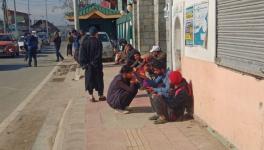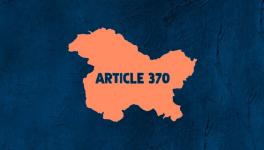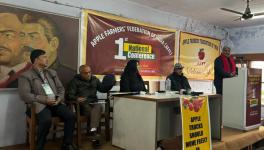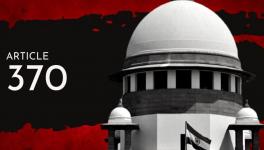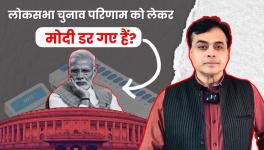NIA Raids Show Govt’s Determination to Suppress Dissenting Voices in J&K: Amnesty International
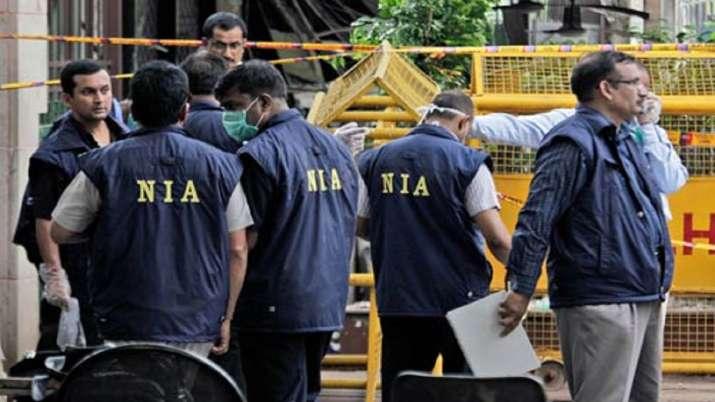
Representational Image. Image Courtesy: India TV News
Following multiple raids in Kashmir’s Srinagar and Bandipora by the National Investigating Agency, targeting non-profit organisations and individuals, which include prominent human rights defenders and journalists on October 28, the Amnesty International has released a report asking the Government of India to “immediately halt its intensifying suppression of dissent”.
Among those who faced raids include activists Khurram Parvez, who is also the coordinator of the Jammu and Kashmir Coalition of Civil Society (JKCCS), and Parveena Ahanger, chairperson of the Association of Parents of Disappeared Persons (APDP). These organisations have worked extensively to bring out instances of alleged human rights abuses in Kashmir by the Indian Government and also highlighted the extrajudicial execution of human rights defenders and torture of people in detention.
The NIA, an anti-terror agency, raided as many as 10 locations in the Valley in relation to a case which, the agency said, is connected to various NGOs and trusts allegedly raising funds in the name of charitable activities and then “using them for carrying out secessionist and separatist activities in Jammu and Kashmir.”
Other areas where raids were conducted include the offices of the NGOs Athrout and GK Trust and on the residence of Agence France-Presse’s Kashmir correspondent Parvez Bukhari.
“These raids are an alarming reminder that India’s government is determined to suppress all dissenting voices in Jammu and Kashmir. The authorities are evidently targeting these civil society and media groups because of their continued work reporting and advocating for the rights of the people of Jammu and Kashmir despite a harsh communications blackout that was imposed by the Indian government in the region since 5 August 2019,” said Julie Verhaar, Acting Secretary General of Amnesty International.
Adding that the government’s actions are violations of freedom of expression and association, the international human rights organisation said, “In a worrying pattern, the UAPA and the foreign funding law are being repeatedly and deliberately weaponized to intimidate, harass and restrict the ability of civil society groups from operating.”
Also read: NIA Raids Human Rights Organisation in Kashmir and Delhi
Earlier on October 1, the humans rights group’s India operations were halted after its bank accounts were frozen by the government, shortly after it released a Situation Update on human rights in Jammu & Kashmir.
The report released by Amnesty also cited the work done by APDP and JKCCS which include submission of almost 40 testimonies of victims who were subjected to arbitrary detention and torture by security forces in Kashmir, to the Working Group on Arbitrary Detention and the UN Special Rapporteur on Torture in September 2020 by the APDP. Prior to that, JKCCS had on August 5, published its bi-annual human rights review documenting the extrajudicial executions of at least 32 individuals and the impact of internet shutdowns in the region.
Noting the use of UAPA and FCRA for criminalising religious minorities, political dissidents and human rights defenders, the report added that they have been repeatedly criticised by UN human rights experts. In one such instance in October 2020, Michelle Bachelet, the UN High Commissioner for Human Rights had appealed to the government of India to review the FCRA and its compliance with international human rights norms. She had also expressed her regret that the foreign funding law was being “used to deter or punish NGOs for human rights reporting”.
Not only that, Amnesty also noted that several organisations have been targeted under the foreign funding law, including Greenpeace India, Lawyers Collective, Centre for Promotion of Social Concerns, Sabrang Trust, Navsarjan Trust, Act Now for Harmony and Democracy, NGO Hazards Centre, and Indian Social Action Forum since 2014, the year in which the NDA government under Narendra Modi was first elected to power.
Further amid the COVID-19 pandemic, the FCRA was amended without any public consultation in September 2020 which, according to the Amnesty International, was an attempt by the Indian government to choke civil society in India.
The Situation Update released by Amnesty International India documented the physical attacks on and intimidation of at least 18 journalists since August 5, 2019. It also demanded the withdrawal of a draconian media policy which was introduced by the government to create “a sustained narrative on the functioning of the government in media” by checking on “anti-national activities”.
According to the international human rights defender, “by directly attacking and failing to protect civil society organisations, India stands in a clear violation of its human rights obligations, particularly Articles 19 and 22 of the International Covenant of the Civil and Political Rights (ICCPR), to which it’s a state party”.
Also read: Amnesty International Halts India Operations, Alleges ‘Witch-Hunt’ by Modi Govt
Get the latest reports & analysis with people's perspective on Protests, movements & deep analytical videos, discussions of the current affairs in your Telegram app. Subscribe to NewsClick's Telegram channel & get Real-Time updates on stories, as they get published on our website.









